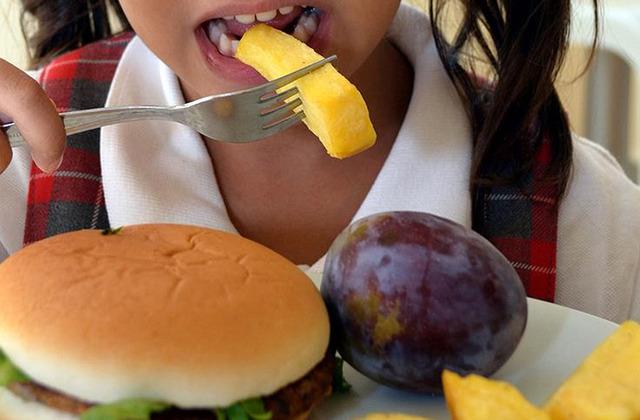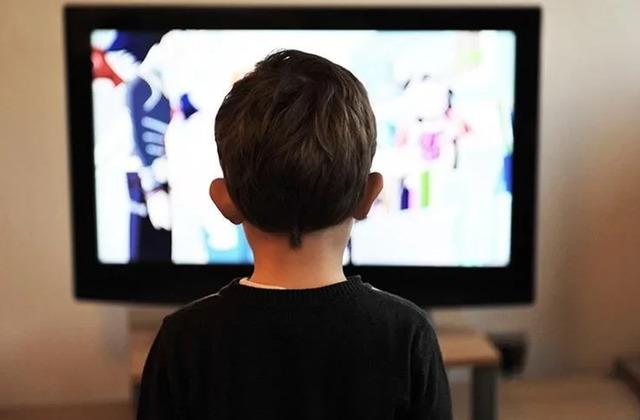Trying to feed a child in front of a screen from an early age is actually seen as one of the bad steps taken for the child’s future. It has been revealed that obesity, which initially manifests itself as an attention deficit disorder, causes the consumption of high-calorie and fatty foods in front of a screen and increases the risk of developing it. Mısra Beste Köleoğlu, Specialist Dietician from the Clinic, said, ”Children who eat in front of a screen usually prefer high-calorie, sugary, fatty and low-nutrient junk food. This situation increases the risk of developing metabolic syndrome components such as insulin resistance, high blood pressure and dyslipidemia, while preventing children from receiving the necessary vitamins and minerals and can lead to nutritional deficiencies.”
IT CAUSES STRESS IN THE DIGESTIVE SYSTEM
Expert Dietician Köleoğlu said that being distracted while eating can cause food to be swallowed without being chewed enough, and that this situation can cause stress in the digestive system, leading to problems such as gas, bloating and indigestion. Expert Dietician Köleoğlu explained the differences between children who are exposed to screens and those who are not:
“Children who eat in front of a screen tend to consume fewer fruits, vegetables, and whole grains. Instead, they opt for high-sugar and high-fat snacks. This reduces the overall quality of their diet. Children who eat in a screen-free environment tend to eat more slowly and mindfully. This helps them notice when they are full in time and prevents overeating.”

THESE HABITS CAN ACCELERATE WEIGHT GAIN
Mentioning that eating in front of the screen can prevent the feeling of fullness, Expert Dietitian Köleoğlu said, “Research shows that eating mindfully (mindful eating) increases the feeling of fullness and prevents overeating.” Also mentioning that it can trigger an overweight problem, he explained, “Children tend to consume more junk food in front of the screen, which increases total calorie intake. In addition, time spent in front of the screen reduces physical activity, causing energy imbalance. In the long term, these habits can accelerate weight gain and increase the risk of obesity.”

DO NOT KEEP TV, TABLET AND PHONE ON THE DINING TABLE
Stating that it is possible to create a screen-free eating routine, Dietician Köleoğlu said that this could also improve the child’s general health and eating habits and made suggestions:
“Eating regular meals as a family helps to develop healthy eating habits. Turn off screens during mealtimes and create an environment where family members interact with each other. Keep eating areas away from screens. Do not have a television, tablet or phone at the dinner table. This allows the focus to be on the meal. Teach children to enjoy their food while eating, eat slowly and savor every bite. This helps them understand the feeling of fullness better and prevents overeating. Inform children about the negative effects of screens on eating. Educate them to develop healthy eating habits.”

”IT MAY CAUSE US TO TURN TO UNHEALTHY SNACKS”
Stating that screen addiction also increases junk food consumption, Expert Dietician Köleoğlu said, “The time spent in front of the screen can cause people to turn to unhealthy snacks, especially due to advertisements and boredom. Studies show that children who are exposed to food advertisements while watching television tend to consume these foods. This increases total calorie intake and therefore the risk of obesity.”

”GIVE CHILDREN HEALTHY EATING HABIT”
Stressing that parents should be role models for their children regarding healthy eating and screen use, Specialist Dietitian Köleoğlu said, “Parents should be role models for their children by paying attention to their own eating habits. Limit the time your children spend in front of the screen and prohibit screen use during meal times. The American Academy of Pediatrics recommends limiting children’s daily screen time to 1-2 hours. Encourage children to eat healthy eating habits and to eat meals carefully with the family. Teach children the importance of being careful while eating and enjoying their meals.” (DHA)
